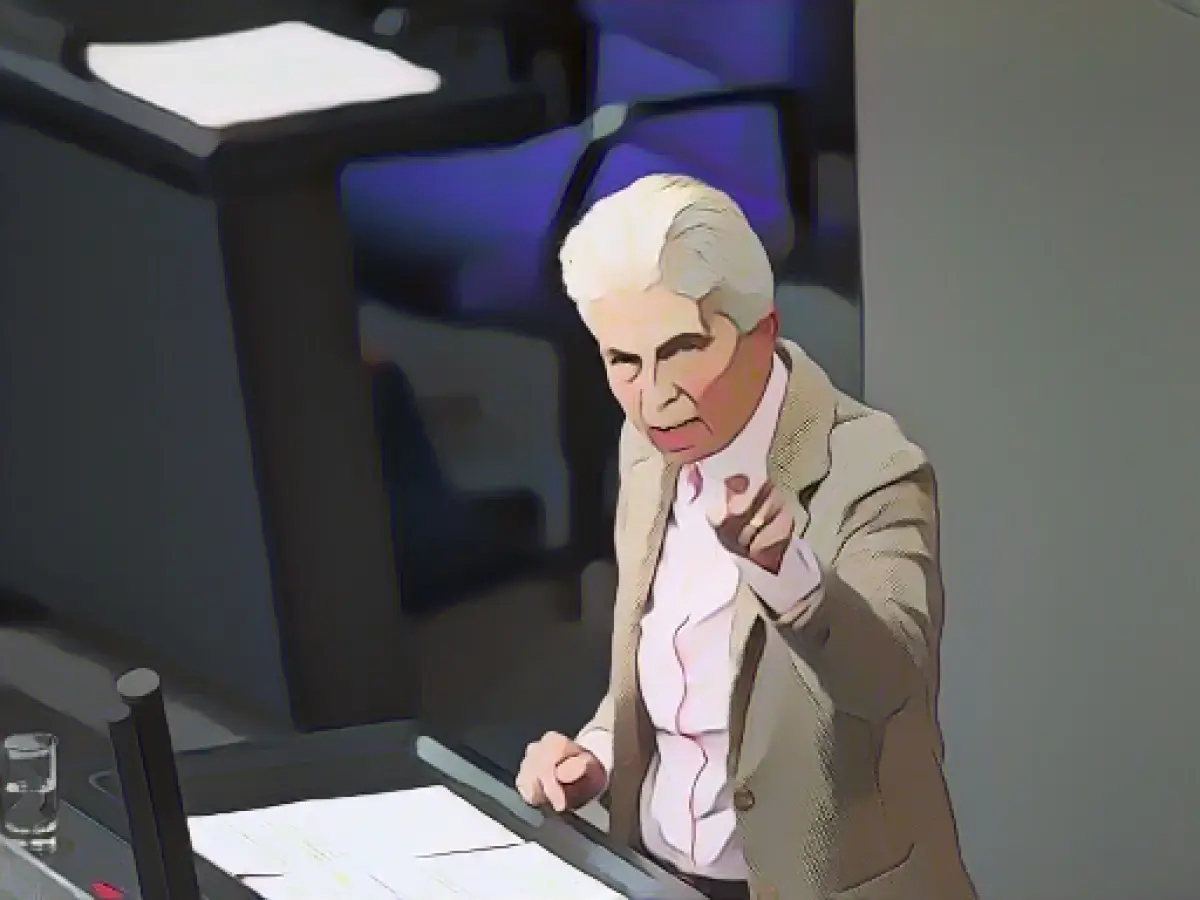Strack-Zimmermann: Securing equipment and aid for Ukraine
The Chair of the Defense Committee, Marie-Agnes Strack-Zimmermann (FDP), has warned against cutting spending on the Bundeswehr and aid to Ukraine following the Karlsruhe budget ruling.
"The special Bundeswehr fund of 100 billion euros will remain in place, as it is enshrined in the Basic Law. The ruling will have no impact here," she told the German Press Agency in Berlin. "The eight billion euros for Ukraine, on the other hand, are not secure as things stand. They need to be justified separately. We are working on this as well as on further securing the Bundeswehr's equipment," she said. Due to the security situation, funding must be secured.
Last week, the Federal Constitutional Court declared the reallocation of 60 billion euros in loans in the 2021 budget null and void. The traffic light parties are struggling to find a way to plug the financial hole.
Increase production capacities
The German government, made up of the SPD, Greens and FDP, had previously announced its intention to increase military aid for Ukraine from four to eight billion euros in the coming year. One goal of the European partners is already in difficult waters: the EU plans to deliver one million artillery shells to Ukraine by spring 2024 are expected to fail.
"If all partners in Europe were to deliver what they had previously promised, the Ukrainians would be helped much more quickly and effectively to make progress accordingly," said Strack-Zimmermann. To achieve this, production capacities would have to be ramped up.
In response to the Ukrainians' request for support, however, "endless discussions about which weapons we will and will not supply" have been going on for months. Russia would have time to prepare for the deployment of these systems. Strack-Zimmermann: "This is what happened with the Leopard main battle tank and Marder infantry fighting vehicle, and it is now also happening with the Taurus cruise missile, which would give Ukrainian soldiers the ability to disrupt Russian supplies." The time factor plays "a significant role".
Criticism from Strack-Zimmermann
She criticized the fact that "many a European statesman has his picture taken with President Volodymyr Zelensky in order to signal effective support for Ukraine". "Where is the big tank coalition that was announced?" asked Strack-Zimmermann.
"And how disappointing the news that the EU, as announced by the EU High Representative for Foreign Affairs and Security Policy, Josep Borrell, is now unable to deliver one million pieces of artillery ammunition for Ukraine in this quantity after all. Jumped as a tiger and landed as a bedside rug."
Strack-Zimmermann is set to become her party's lead candidate for the upcoming European elections. "If the party nominates me as lead candidate in January and I am elected to the EU Parliament on June 9 next year, I would very much like to continue to focus on foreign and security policy," she said. In the future, Europe will have to take much more care of its own security, despite its friendship with the USA. She said: "To assume that the United States will naturally pull the chestnuts out of the fire for us in Europe and take responsibility for Europe is naive."
- Strack-Zimmermann emphasized the need to maintain the 100 billion euro special Bundeswehr fund, while the justification for the 8 billion euros allocated for Ukraine needs further examination and securing.
- Strack-Zimmermann highlighted the importance of European partners delivering on their previously promised military aid to Ukraine, as it could significantly aid Ukraine's progress in conflicts and expedite receiving much-needed support.
- Criticizing the slow delivery of promised weapons, Strack-Zimmermann pointed out that Russia could exploit the delay, as witnessed with the Leopard main battle tank and Marder infantry fighting vehicle, and now the Taurus cruise missile.
- In preparation for the EU elections, Strack-Zimmermann expressed her desire to continue focusing on foreign and security policy, advocating for Europe to take more responsibility for its own security, acknowledging that it cannot expect constant support from the United States.
Source: www.dpa.com








